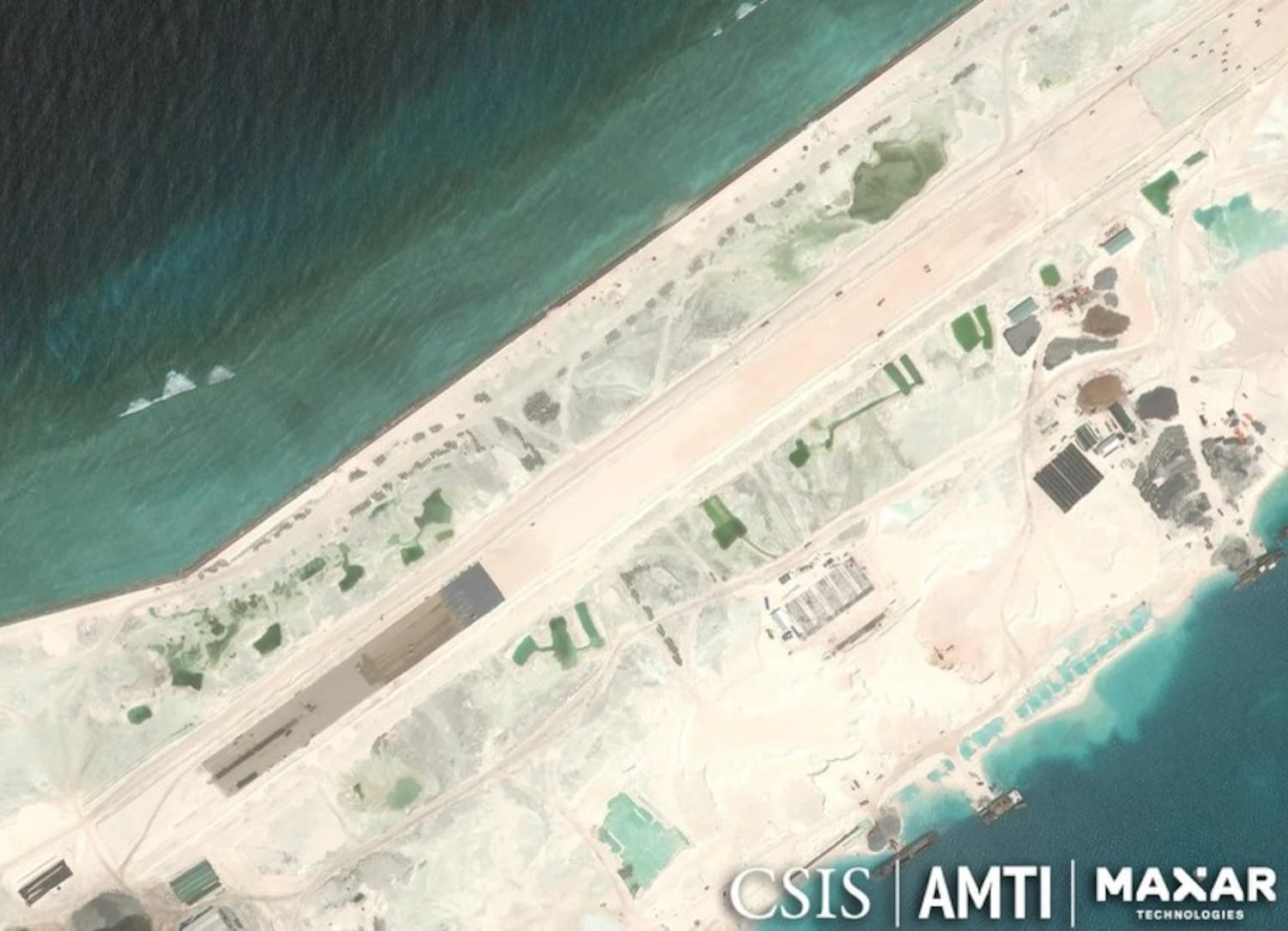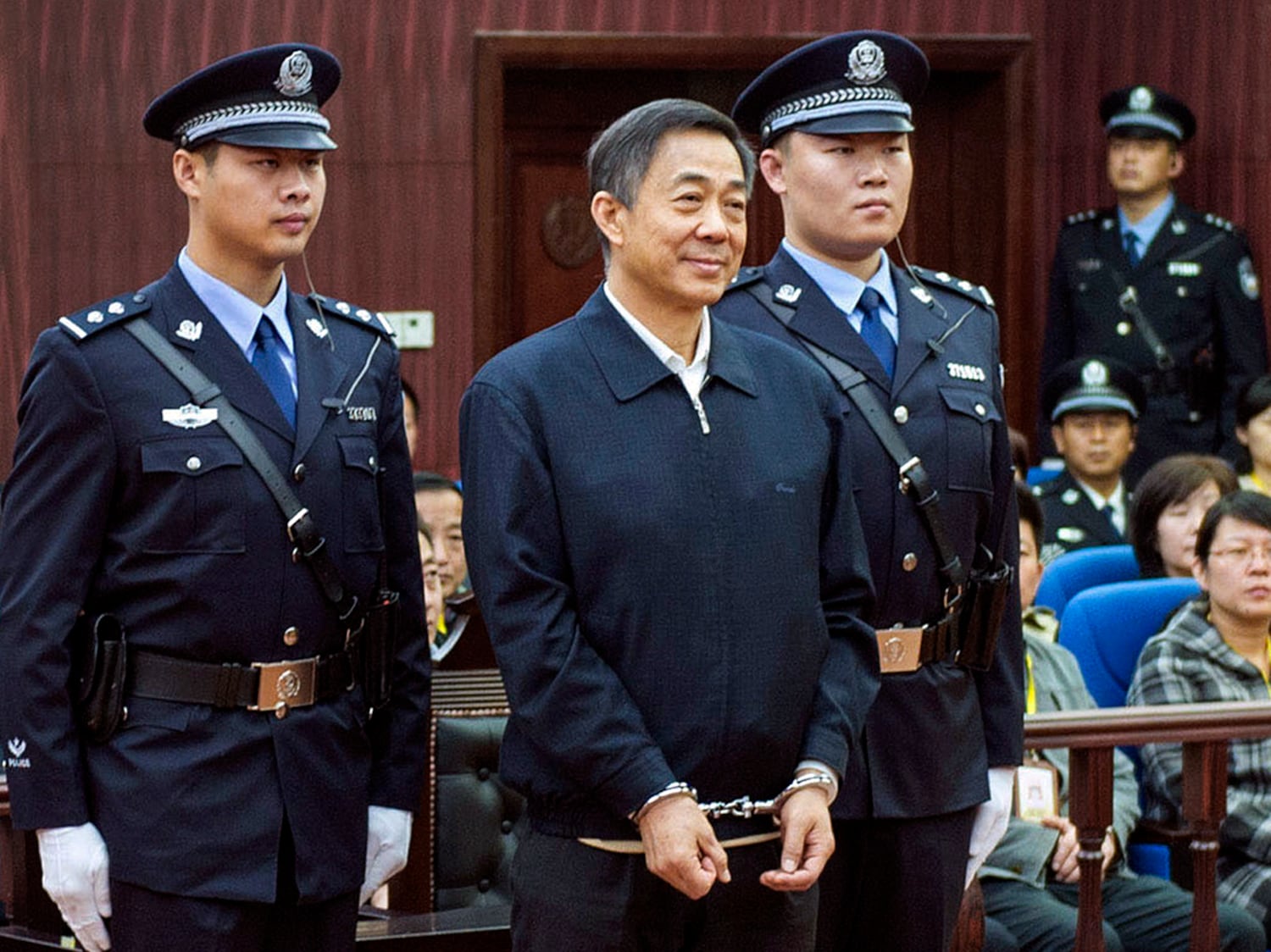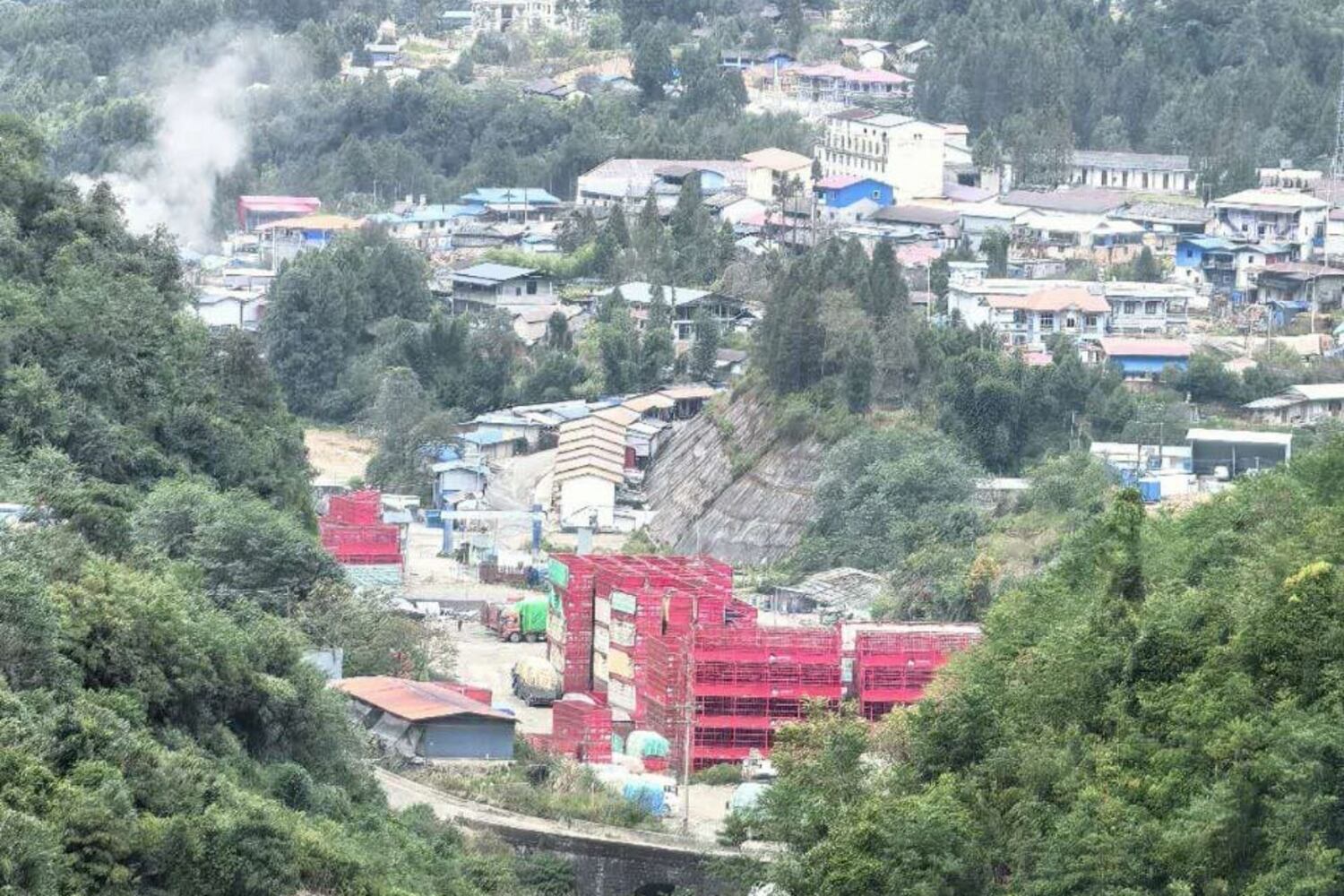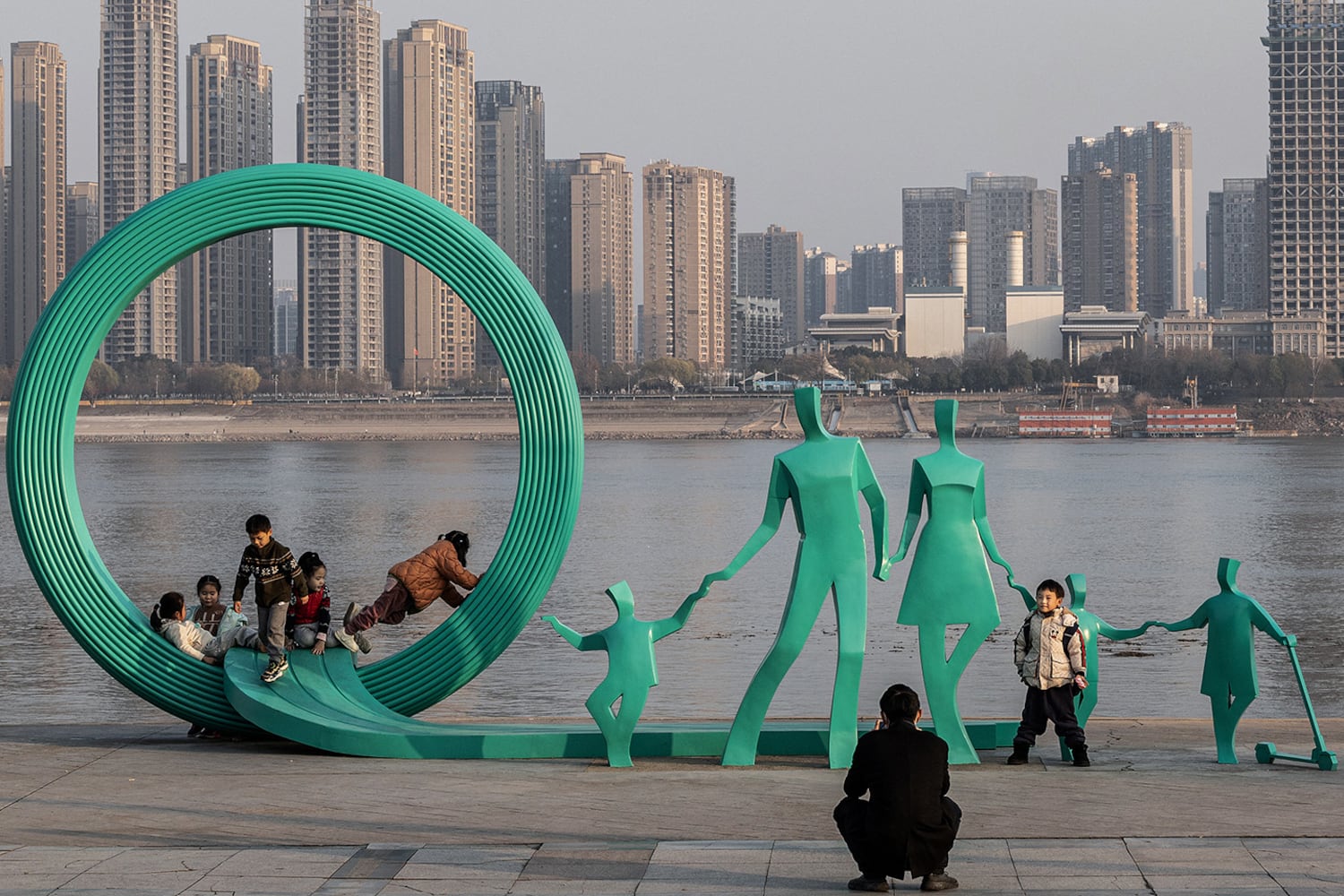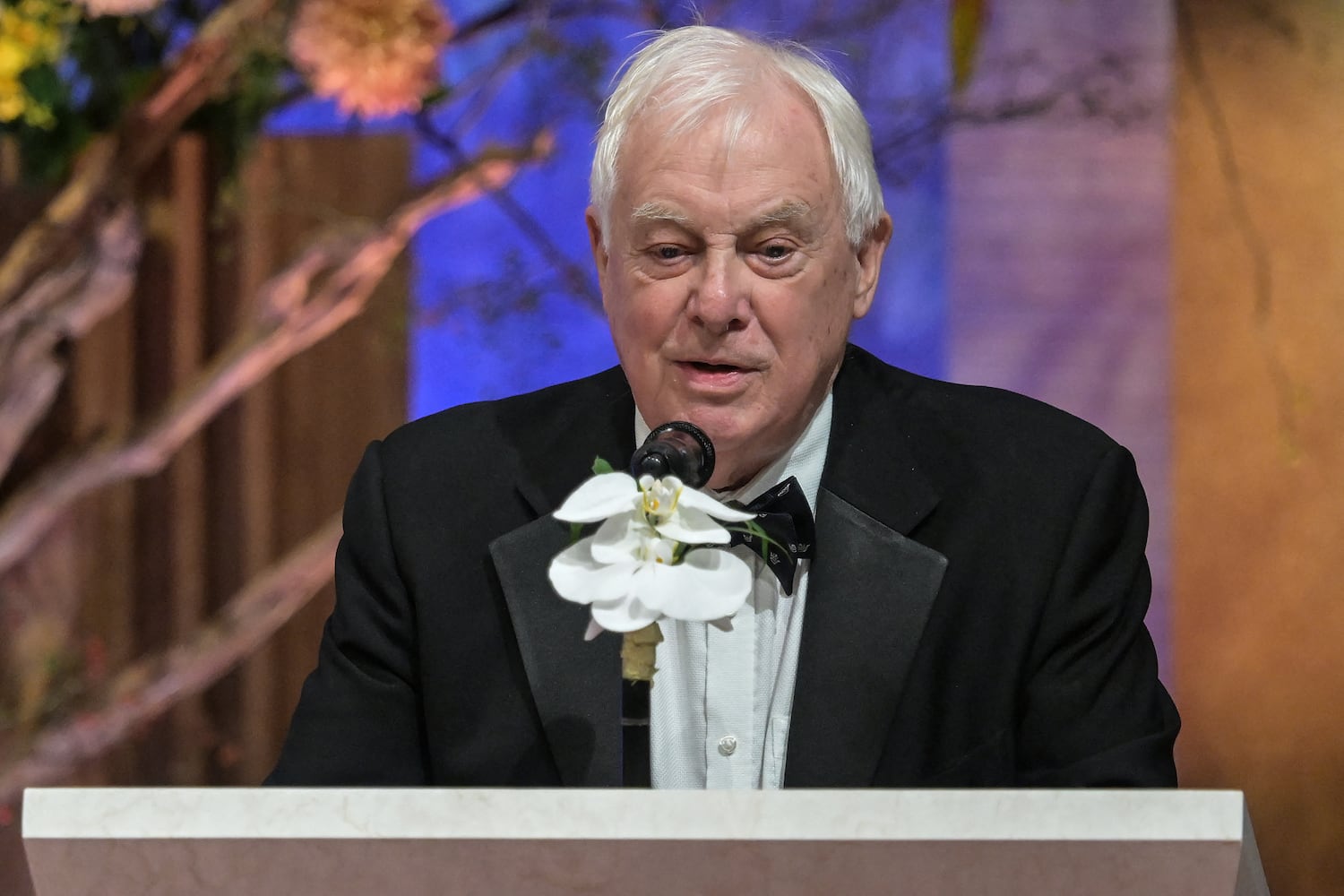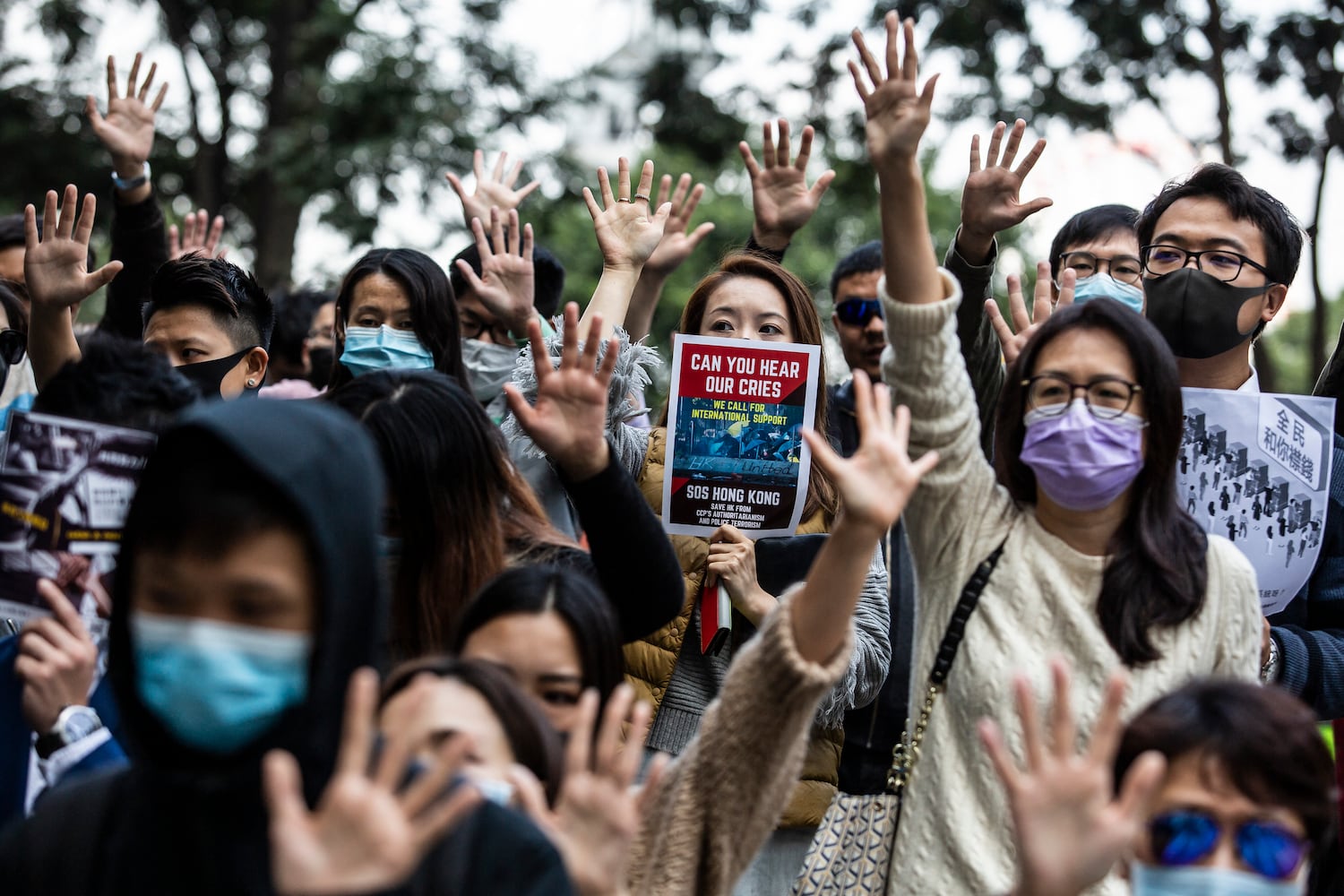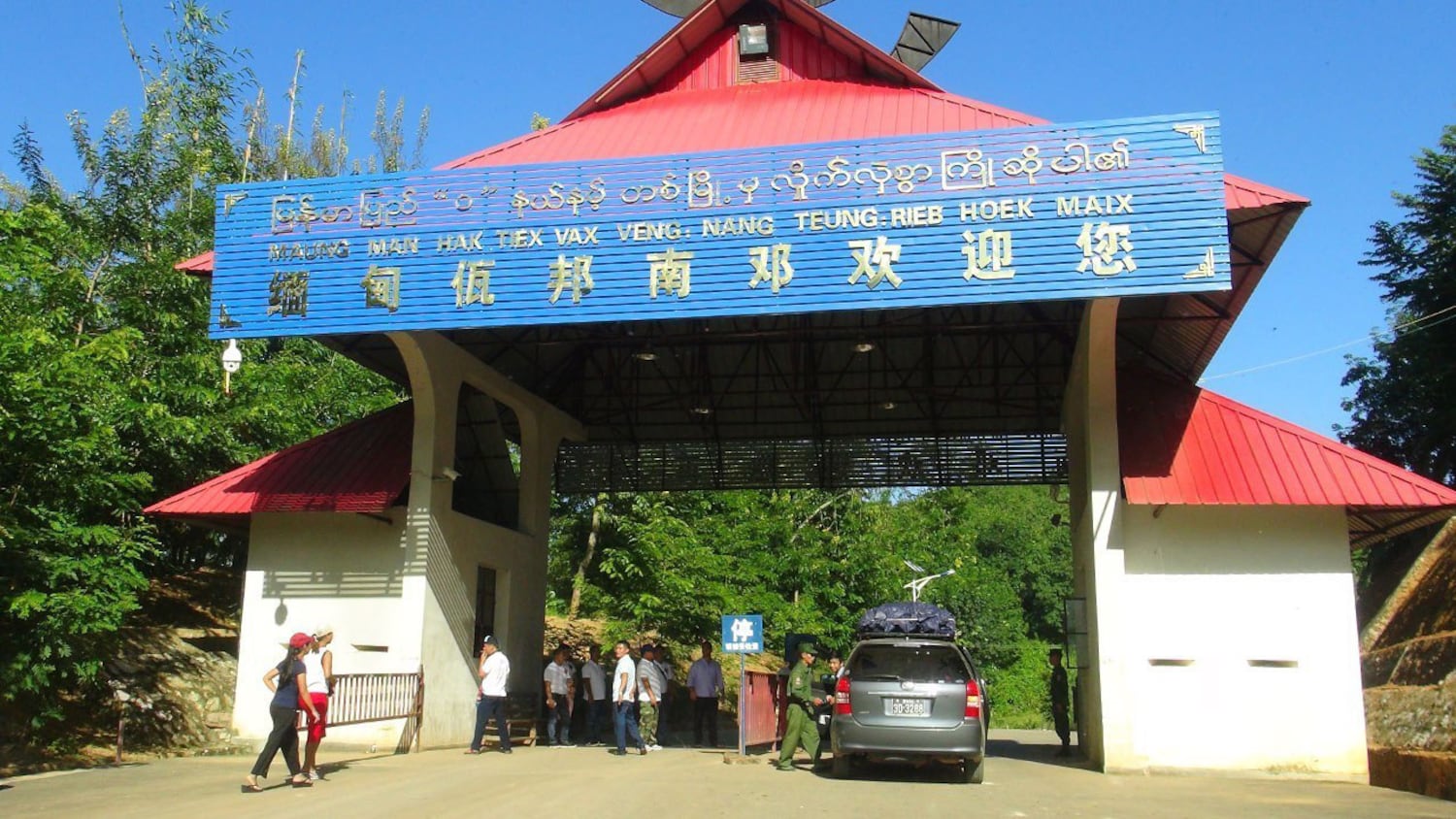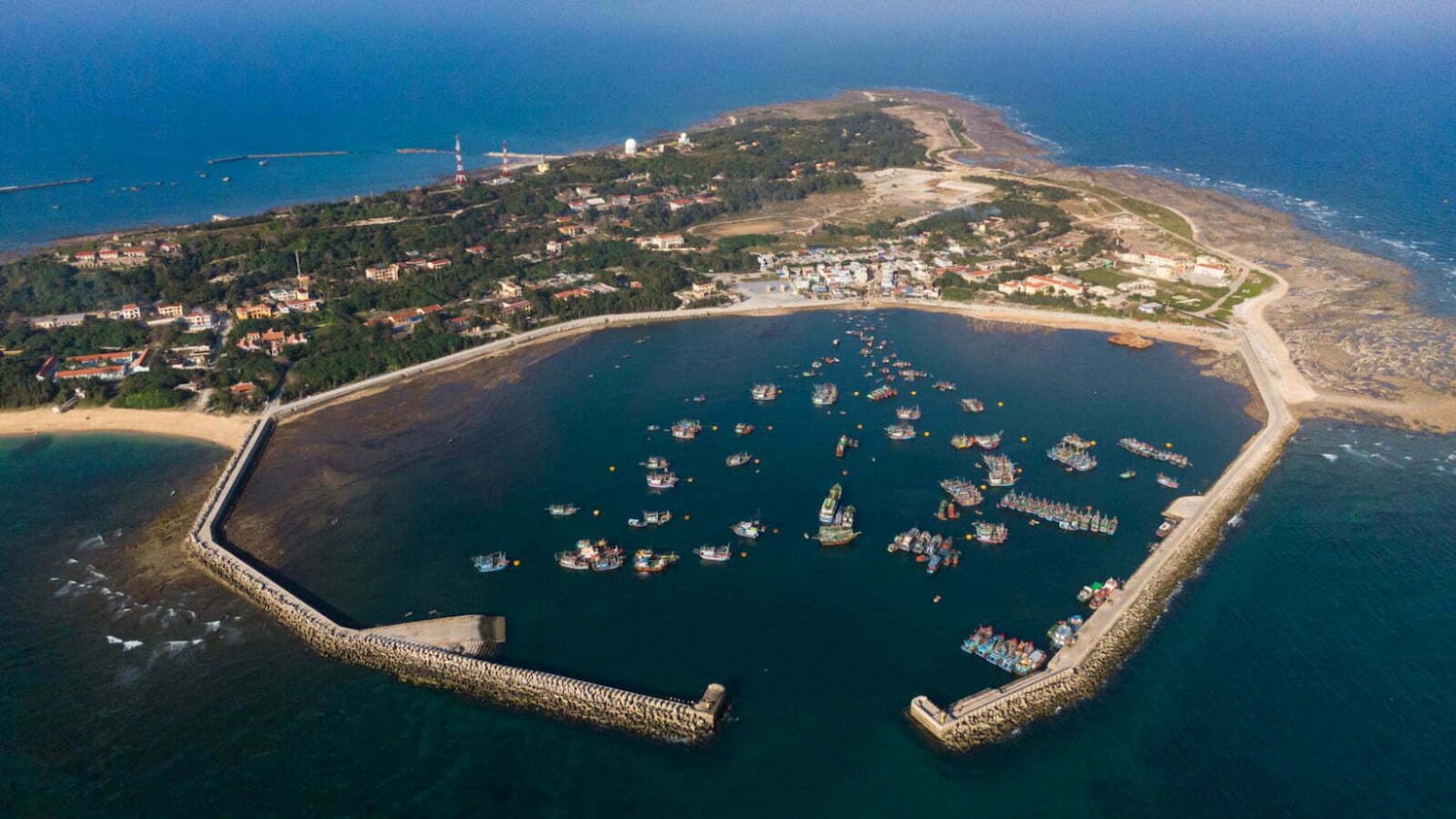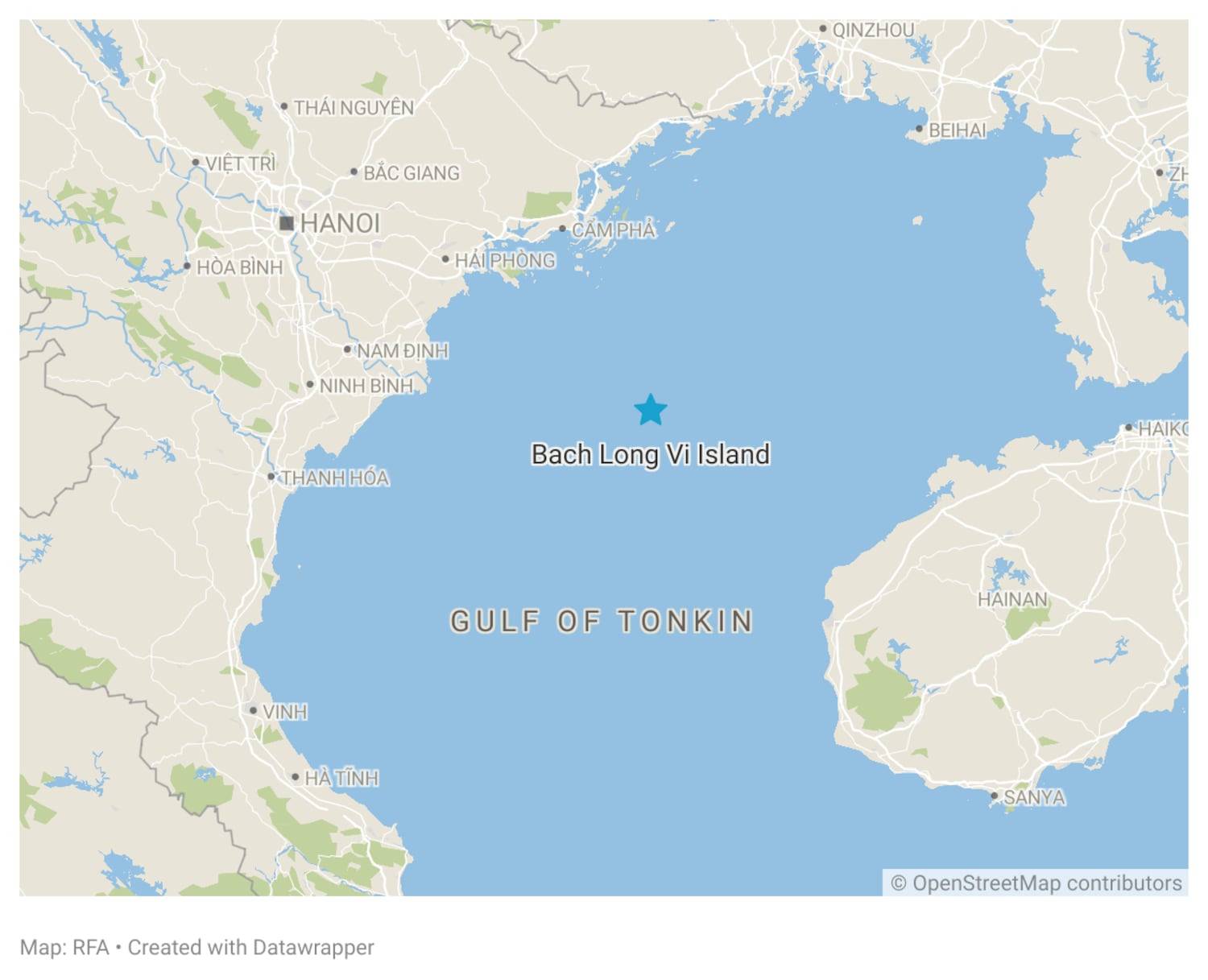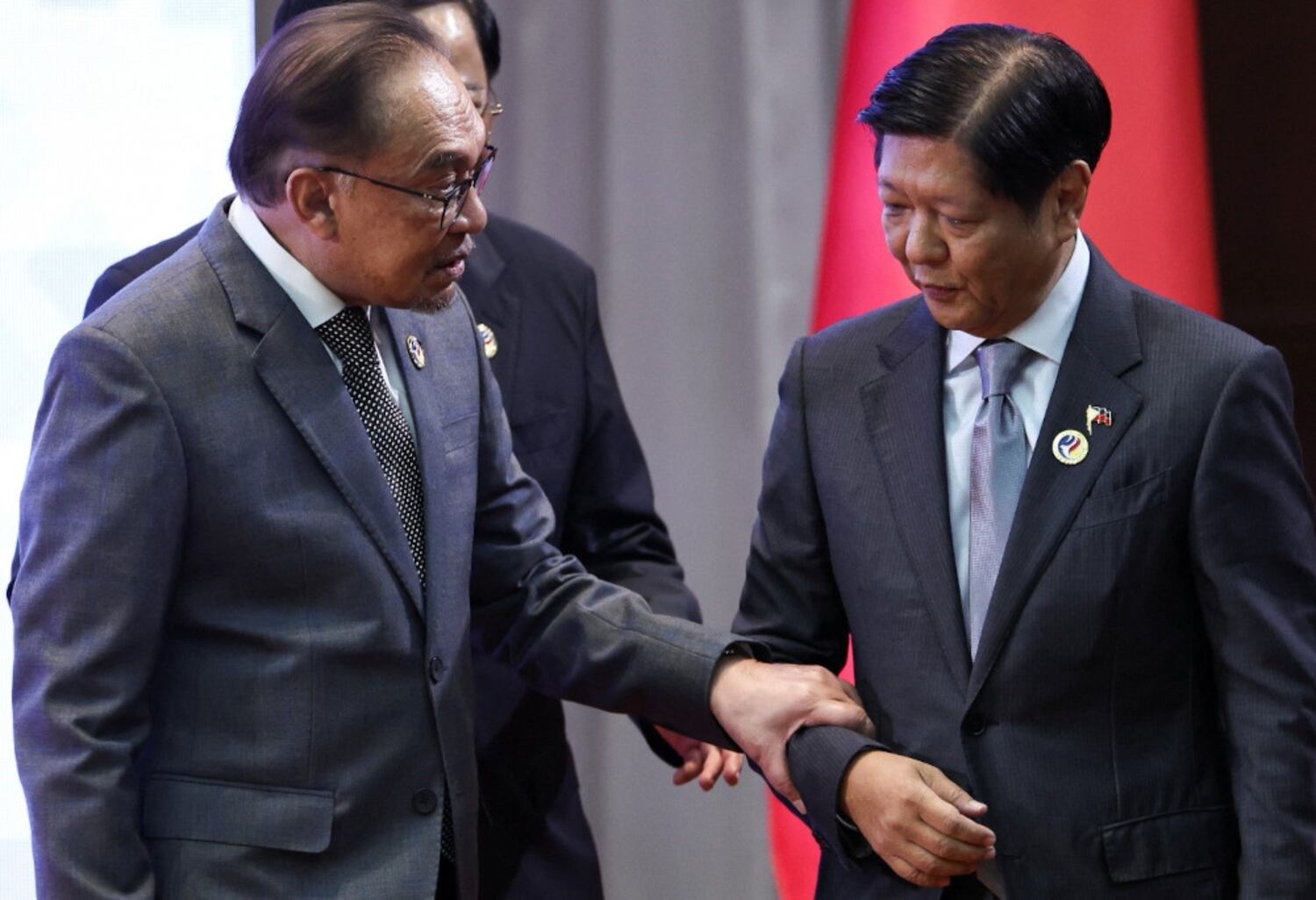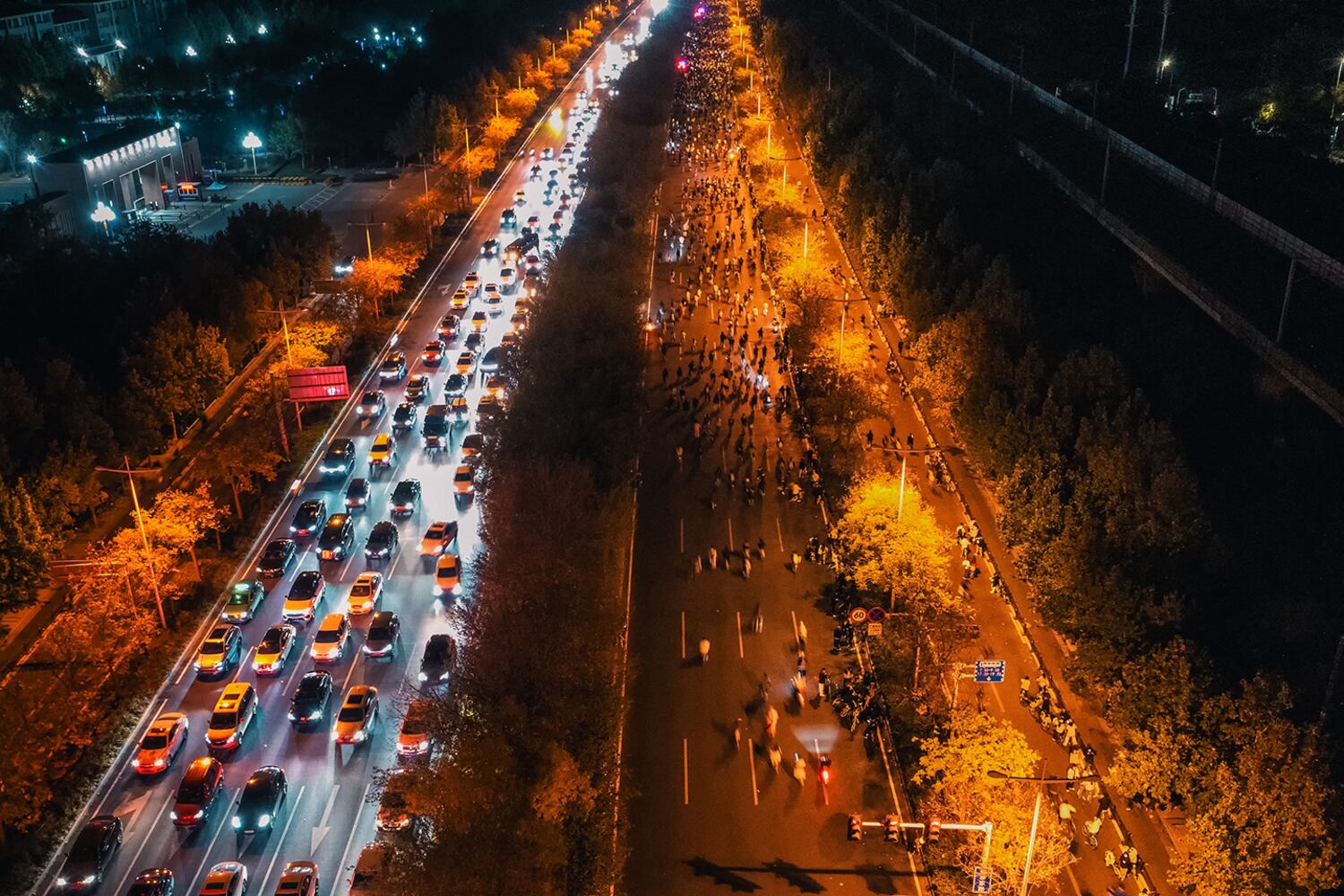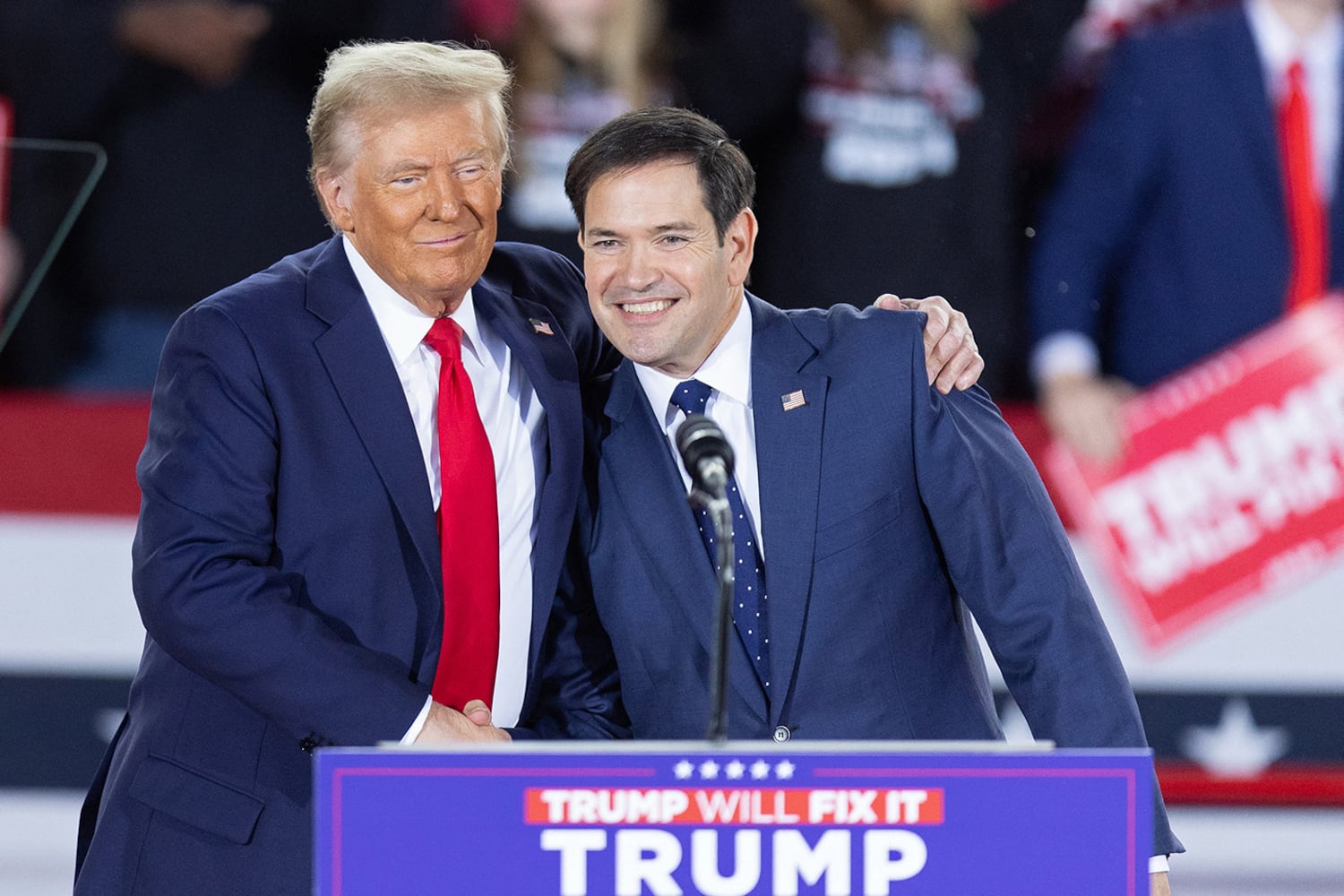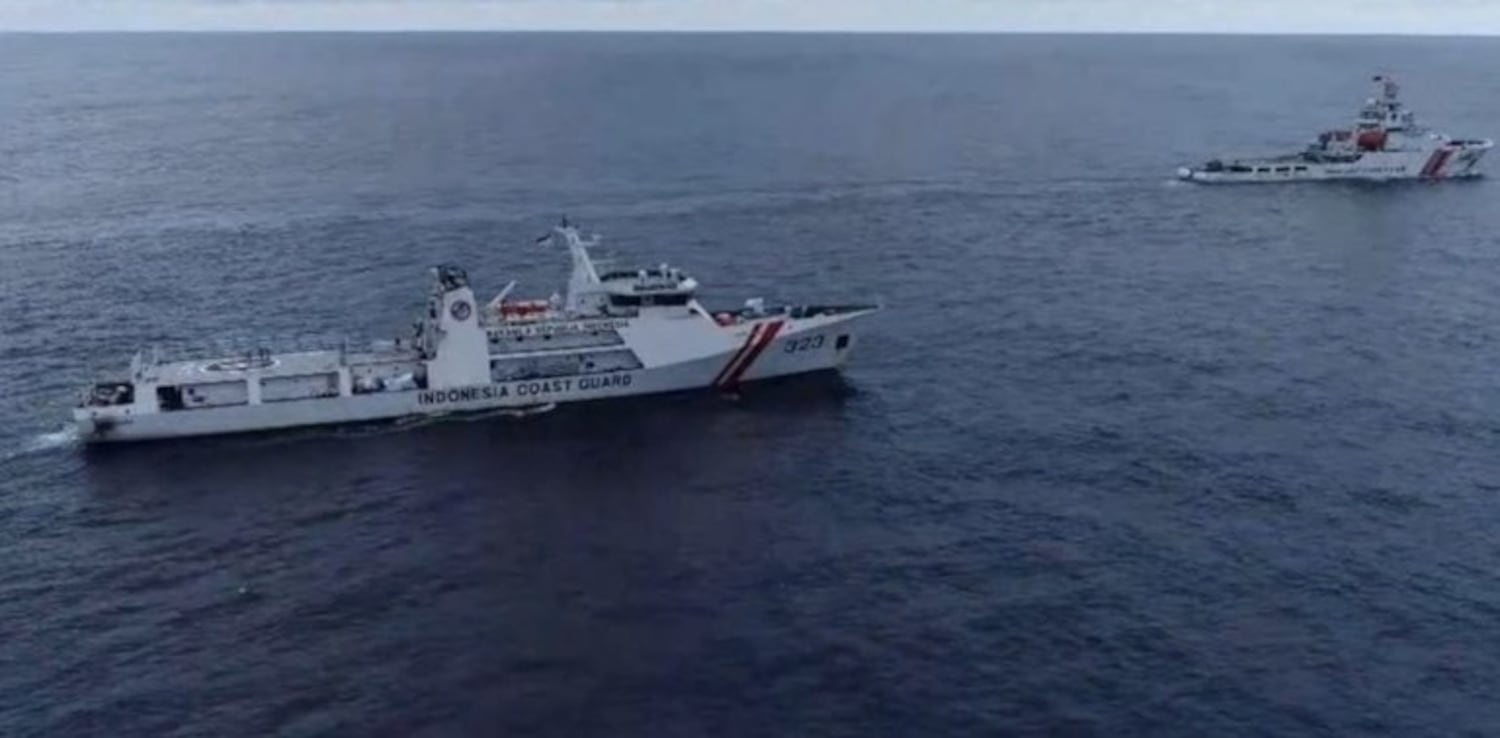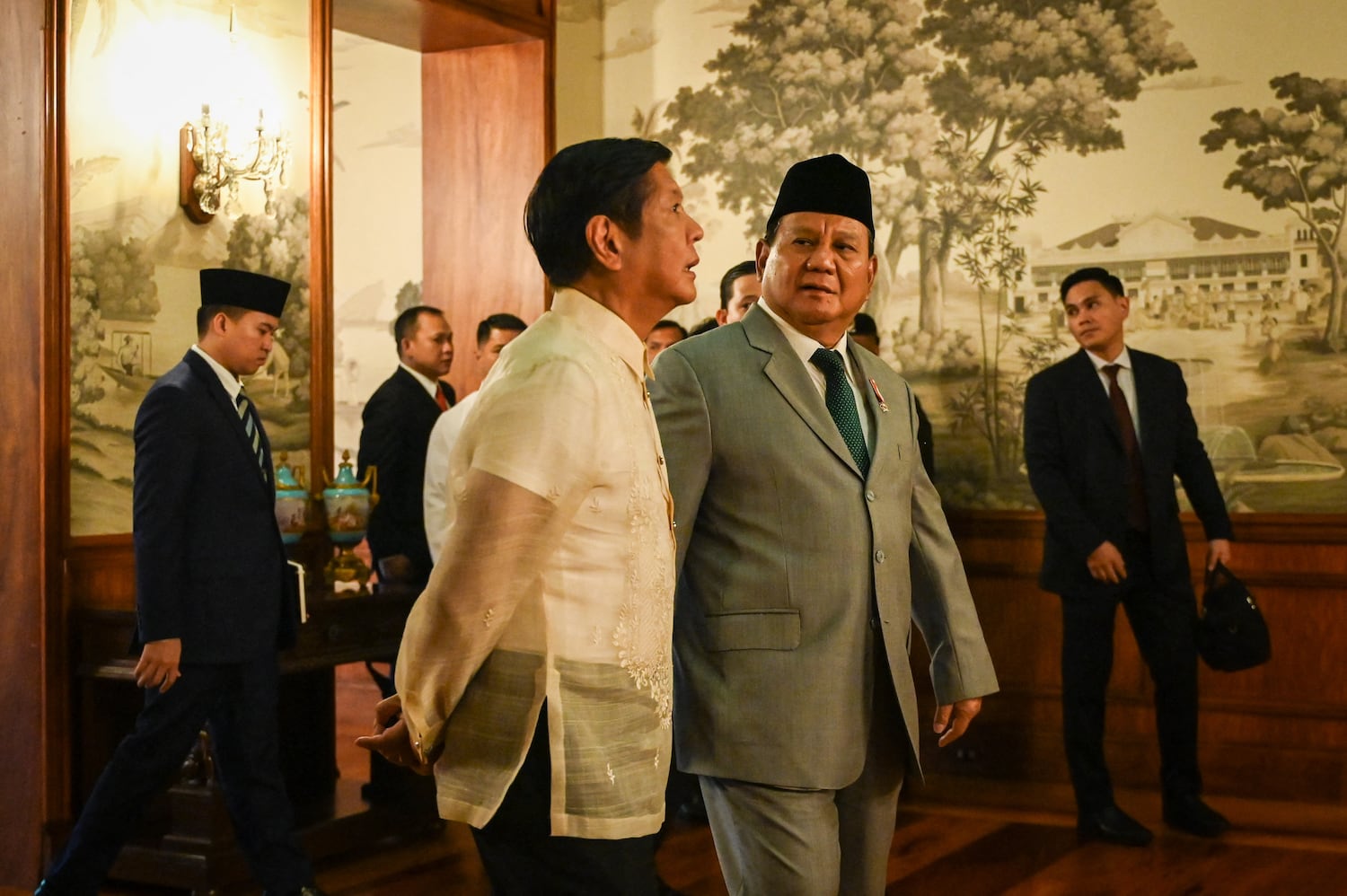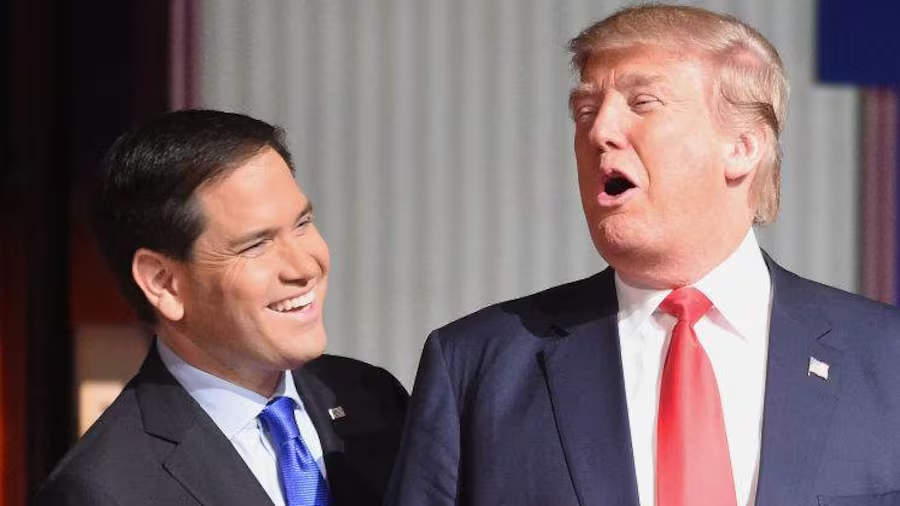
Rubio and Trump during a break in the 2016 presidential debate. AP photo.
Of all Trump’s choices for his foreign policy team, Marco Rubio is the least controversial to the neoconservative foreign policy establishment in Washington, and the most certain to provide continuity with all that is wrong with U.S. foreign policy, from Cuba to the Middle East to China.
The only area where there might be some hope for ending a war is Ukraine, where Rubio has come close to Donald Trump’s position, praising Ukraine for standing up to Russia, but recognizing that the U.S. is funding a deadly “stalemate war” that needs to be “brought to a conclusion.”
But in all the other hot spots around the world, Rubio is likely to make conflicts even hotter, or start new ones.
1. His obsession with regime change in Cuba will sink any chance of better relations with the island.
Like other Cuban-American politicians, Marco Rubio has built his career on vilifying the Cuban Revolution and trying to economically strangle and starve into submission the people of his parents’ homeland.
It is ironic, therefore, that his parents left Cuba before the Revolution, during the U.S.-backed dictatorship of Fulgencio Batista, whose executioners, secret police and death squads killed an estimated 20,000 people, according to the CIA, leading to a wildly popular revolution in 1959.
When President Obama began to restore relations with Cuba in 2014, Rubio swore to do “everything possible” to obstruct and reverse that policy. In May 2024, Rubio reiterated his zero tolerance for any kind of social or economic contacts between the U.S. and Cuba, claiming that any easing of the U.S. blockade will only “strengthen the oppressive regime and undermine the opposition… Until there is freedom in Cuba, the United States must maintain a firm stance.”
In 2024 Rubio also introduced legislation to ensure that Cuba would remain on the U.S. “State Sponsor of Terrorism List,” imposing sanctions that cut Cuba off from the U.S.-dominated Western banking system.
These measures to destroy the Cuban economy have led to a massive wave of migration in the past two years. But when the U.S. Coast Guard tried to coordinate with their Cuban counterparts, Rubio introduced legislation to prohibit such interaction. While Trump has vowed to stem immigration, his Secretary of State wants to crush Cuba’s economy, forcing people to abandon the island and set sail for the United States.
2. Applying his anti-Cuba template to the rest of Latin America will make enemies of more of our neighbors.
Rubio’s disdain for his ancestral home in Cuba has served him so well as an American politician that he has extended it to the rest of Latin America. He has sided with extreme right-wing politicians like Jair Bolsonaro in Brazil and Javier Milei in Argentina, and rails against progressive ones, from Brazil’s Ignacio Lula da Silva to Mexico’s popular former President Lopez Obrador, whom he called “an apologist for tyranny” for supporting other leftist governments.
In Venezuela, he has promoted brutal sanctions and regime change plots to topple the government of Nicolas Maduro. In 2019 he was one of the architects of Trump’s failed policy of recognizing opposition figure Juan Guaido as president. He has also advocated for sanctions and regime change in Nicaragua.
In March 2023, Rubio urged President Biden to impose sanctions on Bolivia for prosecuting leaders of a 2019 U.S.-backed coup that led to massacres that killed at least 21 people.
Rubio also condemned the government of Honduras for withdrawing from an extradition treaty with the United States this past August, in response to decades of U.S. interference that had turned Honduras into a narco-state riven by poverty, gang violence and mass emigration, until the election of democratic socialist President Xiomara Castro in 2022.
Rubio’s major concern about Latin America now seems to be the influence of China, which has become the leading trade partner of most Latin American countries. Unlike the U.S., China focuses on economic benefits and not internal politics, while American politicians like Marco Rubio still see Latin America as the U.S. “backyard.”
While Rubio’s virulent anti-leftist stands have served him well in climbing to senior positions in the U.S. government, and now into Trump’s inner circle, his disdain for Latin American sovereignty bodes ill for U.S. relations with the region.
3. He believes the US and Israel can do no wrong, and that God has given Palestine to Israel.
Despite the massive death toll in Gaza and global condemnation of Israel’s genocide, Rubio still perpetuates the myth that “Israel takes extraordinary steps to avoid civilian losses” and that innocent people die in Gaza because Hamas has deliberated placed them in the way and used them as human shields. The problem, he says, is “an enemy that doesn’t value human life.”
When asked by CODEPINK in November 2024 if he would support a ceasefire, Rubio replied, “On the contrary. I want them to destroy every element of Hamas they can get their hands on. These people are vicious animals.”
There are few times in this past year that the Biden administration has tried to restrain Israel, but when Biden begged Israel not to send troops into the southern city of Rafah, Rubio said that was like telling the Allied forces in World War II not to attack Berlin to get Hitler.
In a letter to Secretary of State Blinken in August 2024, Rubio criticized the Biden administration’s decision to sanction Israeli settlers linked to anti-Palestinian violence in the occupied West Bank.
“Israel has consistently sought peace with the Palestinians. It is unfortunate that the Palestinians, whether it be the Palestinian Authority or FTOs [Foreign Terrorist Organisations] such as Hamas, have rejected such overtures,” Rubio wrote. “Israelis rightfully living in their historic homeland are not the impediment to peace; the Palestinians are,” he added.
No country besides Israel subscribes to the idea that its borders should be based on 2,000-year-old religious scriptures, and that it has a God-given right to displace or exterminate people who have lived there since then to reconquer its ancient homeland. The United States will find itself extraordinarily isolated from the rest of the world if Rubio tries to assert that as a matter of U.S. policy.
4. His deep-seated enmity toward Iran will fuel Israel’s war on its neighbors, and may lead to a U.S. war with Iran.
Rubio is obsessed with Iran. He claims that the central cause of violence and suffering in the Middle East is not Israeli policy but “Iran’s ambition to be a regional hegemonic power.” He says that Iran’s goal in the Middle East is to “seek to drive America out of the region and then destroy Israel.”
He has been a proponent of maximum pressure on Iran, including a call for more and more sanctions. He believes the U.S. should not re-enter the Iran nuclear deal, saying: “We must not trade away U.S. and Israeli security for vague commitments from a terrorist-sponsoring regime that has killed Americans and threatens to annihilate Israel.”
Rubio calls Lebanon’s Hezbollah a “full blown agent of Iran right on Israel’s border” and that wiping out Hezbollah’s leadership, along with entire neighborhoods full of civilians, is a “service to humanity.” He alleges that Iran has control over Iraq, Syria, the Houthis in Yemen and is a threat to Jordan. He claims that “Iran has put a noose around Israel,” and says that the goal of U.S. policy should be regime change in Iran, which would set the stage for war.
While there will hopefully be leaders in the Pentagon who will caution Donald Trump about the perils of a war with Iran, Rubio will not be a voice of reason.
5. He is beholden to big money, from the weapons industry to the Israel lobby.
Open Secrets reports that Rubio has received over a million dollars in campaign contributions from pro-Israel groups during his career. The Pro-Israel America PAC was his single largest campaign contributor over the last 5 years. When he last ran for reelection in 2022, he was the third largest recipient of funding by pro-Israel groups in the Senate, taking in $367,000 from them for that campaign.
Rubio was also the fourth largest recipient of funding from the “defense” industry in the Senate for the 2022 cycle, receiving $196,000. Altogether, the weapons industry has invested $663,000 in his Congressional career.
Rubio is clearly beholden to the US arms industry, and even more so to the Israel lobby, which has been one of his largest sources of campaign funding. This has placed him in the vanguard of Congress’s blind, unconditional support for Israel and subservience to Israeli narratives and propaganda, making it unlikely that he will ever challenge the ongoing extermination of the Palestinian people or their expulsion from their homeland.
6. He’s so antagonistic towards China that China has sanctioned him–twice!
Speaking at the Heritage Foundation in 2022, Rubio said: “The gravest threat facing America today, the challenge that will define this century and every generation represented here, is not climate change, the pandemic, or the left’s version of social justice. The threat that will define this century is China.”
It will be hard for our nation’s “top diplomat” to ease tensions with a country he has so maligned. He antagonized China by co-sponsoring the Uyghur Forced Labor Prevention Act, which allows the U.S. to bar Chinese imports over alleged Uyghur rights abuses, abuses that China denies and independent researchers question. In fact, Rubio has gone so far as to accuse China of a “grotesque campaign of genocide” against the Uyghurs.
On Taiwan, he has not only introduced legislation to increase military aid to the island, but actually supports Taiwanese independence — a dangerous deviation from the US government’s long-standing One China approach.
The Chinese responded to Rubio by sanctioning him, not once but twice–once regarding the Uyghurs and once for his support of Hong Kong protests. Unless China lifts the sanctions, he would be the first U.S. secretary of state to be banned from even visiting China.
Analysts expect China to try to sidestep Rubio and engage directly with Trump and other senior officials. Steve Tsang, the director of the China Institute at the U.K.’s School of Oriental and African Studies, told Reuters, “If that doesn’t work, then I think we’re going to get into a much more regular escalation of a bad relationship.”
7. Rubio knows sanctions are a trap, but he doesn’t know how to escape.
Rubio is a leading advocate of unilateral economic sanctions, which are illegal under international law, and which the UN and other countries refer to as “unilateral economic coercive measures.”
The United States has used these measures so widely and wildly that they now impact a third of the world’s population. U.S. officials, from Treasury Secretary Yellen to Rubio himself, have warned that using the U.S. financial system and the dollar’s reserve currency status as weapons against other countries is driving the rest of the world to conduct trade in other currencies and develop alternative financial systems.
In March 2023, Rubio complained on Fox News, “We won’t have to talk sanctions in five years, because there will be so many countries transacting in currencies other than the dollar, that we won’t have the ability to sanction them.”
And yet Rubio has continued to be a leading sponsor of sanctions bills in the Senate, including new sanctions on Iran in January 2024 and a bill in July to sanction foreign banks that participate in alternative financial systems.
So, while other countries develop new financial and trading systems to escape abusive, illegal U.S. sanctions, the nominee for Secretary of State remains caught in the same sanctions trap that he complained about on Fox.
8. He wants to crack down on U.S. free speech.
Rubio wants to curtail the right to free speech enshrined in the First Amendment of the U.S. Constitution. In May, he described campus protests against Israel as a “complete breakdown of law and order.”
Rubio claimed to be speaking up for other students at American universities. “[They] paid a lot of money to go to these schools, [but are being disrupted by] a few thousand antisemitic zombies who have been brainwashed by two decades of indoctrination in the belief that the world is divided between victimizers and victims, and that the victimizers in this particular case, the ones that are oppressing people, are Jews in Israel,” said Rubio.
The Florida senator has said he supports Trump’s plan to deport foreign students who engage in pro-Palestinian campus protests. In April, he called for punishing supporters of the Israel boycott movement as part of efforts to counter antisemitism, falsely equating any attempt to respond to Israel’s international crimes with antisemitism.
And what about those crimes, which the students are protesting? After visiting Israel in May, Rubio wrote an article for National Review, in which he never mentioned the thousands of civilians Israel has killed, and instead blamed Iran, Biden and “morally corrupt international institutions” for the crisis.
Marco Rubio expects Americans to believe that it is not genocide itself, but protests against genocide, that are a complete breakdown of law and order. He couldn’t be more wrong if he tried.
Students are not Rubio’s only target. In August 2023, he alleged that certain “far-left and antisemitic entities” may have violated the Foreign Assistance Registration Act by their ties to China. He called for a Justice Department investigation into 18 groups, starting with CODEPINK. These unfounded claims of China connections are only meant to intimidate legitimate groups that are exercising their free speech rights.
Conclusion
On each of these issues, Rubio has shown no sign of understanding the difference between domestic politics and diplomacy. Whether he’s talking about Cuba, Palestine, Iran or China, or even about CODEPINK, all his supposedly tough positions are based on cynically mischaracterizing the actions and motivations of his enemies and then attacking the “straw man” he has falsely set up.
Unscrupulous politicians often get away with that, and Rubio has made it his signature tactic because it works so well for him in American politics. But that will not work if and when he sits down to negotiate with other world leaders as U.S. secretary of state.
His underlying attitude to foreign relations is, like Trump’s, that the United States must get its way or else, and that other countries who won’t submit must be coerced, threatened, couped, bombed or invaded. This makes Rubio just as ill-equipped as Antony Blinken to conduct diplomacy, improve U.S. relations with other countries or resolve disputes and conflicts peacefully, as the UN Charter requires.
The post
Eight Reasons Why Marco Rubio Would Be a Disastrous Secretary of State first appeared on
Dissident Voice.
This post was originally published on Dissident Voice.
